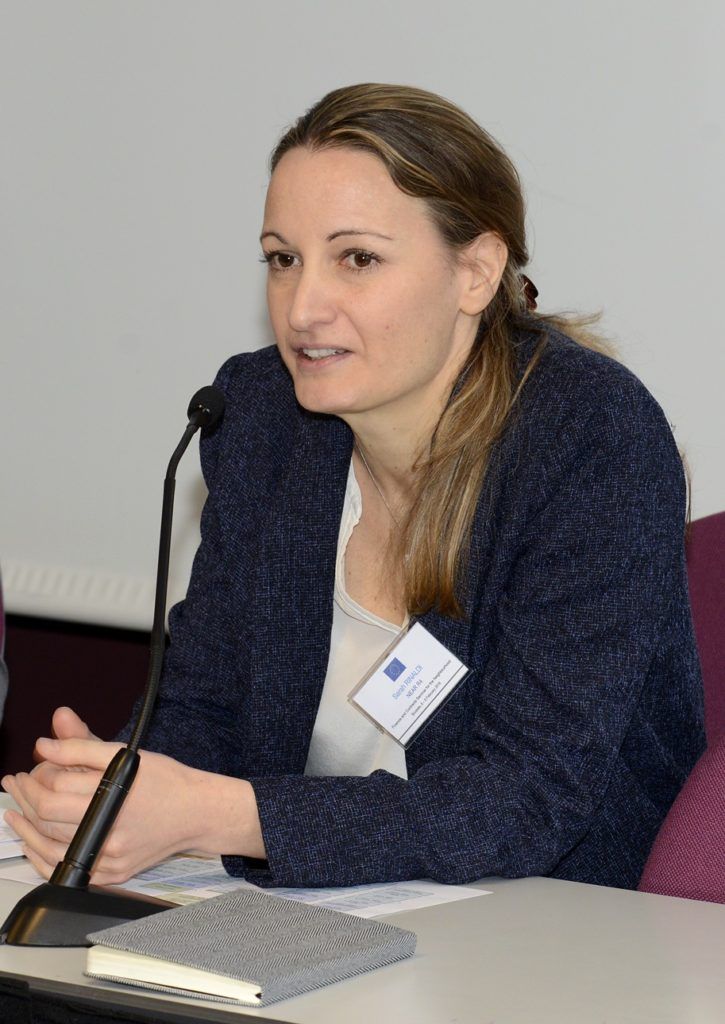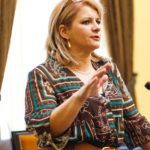Voices from the field
Sarah RINALDI
"Both EU and non-EU states have a say at political and technical level: their rights are equally respected"
I started working on CBC in early 2006, in preparation of the future Neighbourhood Instrument (ENPI) for the period 2007-2013. The decision had been taken that CBC would feature as a specific programme of the ENPI and that it would be managed by the Directorate General in charge of development cooperation (DG AIDCO at the time) given the specificity linked to the participation of partner countries for the Southern and Eastern Neighbourhood.
At that time, the objectives of the Commission were to design a new generation of programmes to allow close territorial cooperation between Member States and partner countries on the two sides of the EU’s external borders. This could entail big infrastructure projects or small people-to-people projects, so the rules of implementation needed to cover the full spectrum of possible activities. The implementing rules needed also to respect the right of each participating country (EU Member States and partner countries) to have a say, both at political and technical level.
I was particularly involved in drafting the first ever CBC Implementing Rules. I remember that it was quite a challenge for me and many colleagues to understand the intrinsic logic of the CBC and to adapt it to our external action rules and methods of implementation. There were hours and hours of discussions within the team as well as with other Directorate Generals, such as DG Budget, to draft tailor-made rules to answer the specific needs of cross-border cooperation under shared management. There were also several rounds of negotiations with Member States to take into account their previous experience and their vision for the new programmes. So the CBC Implementing Rules could really be considered as a joint product of the Commission and Member States.
After 2007, these programmes have been set up and started to run. Professionally, I moved to new horizons. Since September 2017, I am heading the “Contracts & Finances” Unit within DG NEAR. In this position, I find very interesting to work again on the CBC file and observe how it has evolved over the years.
Compared to when I left them ten years ago, the CBC programmes have now yielded tangible results, both on the ground with concrete projects and in terms of partnerships between EU and partner countries, despite the geopolitical tensions or the instability in the region. The level of cooperation within programmes is very high, and there is now a strong CBC community.
I concur however with the findings of the ex-post evaluation of the ENPI CBC that the programmes could have been more articulated with the rest of the Neighbourhood policy programmes, both at bilateral and regional levels, which can be seen as a missed opportunity in terms of impact and visibility. But I am sure this will be improved in this period.
Overall, I find myself in the CBC raison d’être which is to consider borders not as closed doors, but as windows to the outside and as opportunities for increased cooperation and exchanges with our neighbouring partners.
Sarah Rinaldi is French. She has studied political science at Sciences-Po in Paris and holds a master’s degree in international development cooperation from La Sorbonne. She has been working for the European Commission since 2003. She is now heading the “finances and contract unit”. A long carrier already for this young woman who was the policy assistant to the Deputy Director General of DEVCO in charge of geographic coordination, and who managed the various EU “blending facilities” fostering investment through the blending of loans and grants worldwide. Sarah is also very engaged on human rights. She has been the deputy Head of the Unit in charge of “Human Rights, Gender, Democratic Governance” within the Directorate-General for International Cooperation and Development of the European Commission (DEVCO).




















